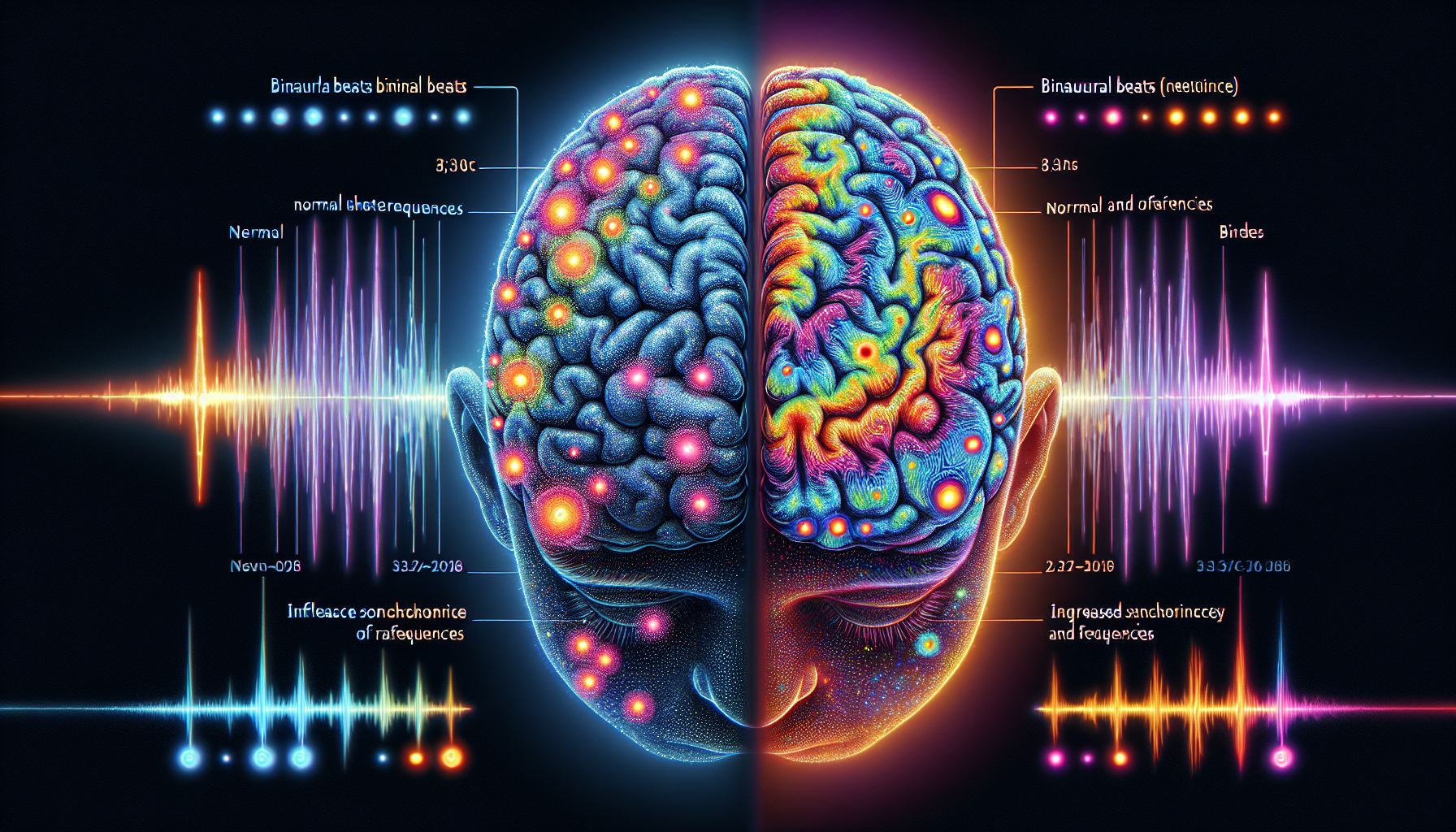Binaural beats, an auditory phenomenon, have captivated scientists and enthusiasts alike with their potential to influence brainwave patterns. This auditory illusion occurs when two slightly different frequencies are played in each ear, leading the brain to perceive a third tone known as the binaural beat. The science behind this effect encompasses principles of brainwave synchronization and its implications for cognitive and neurological health.
Understanding Brainwave Synchronization
Brainwaves are electrical impulses in the brain, and their frequency can be indicative of our mental state. For instance, delta waves are associated with deep sleep, while beta waves are connected with active, alert states. Synchronization of brainwaves means that neurons are firing at the same frequency, which can enhance mental coordination, concentration, and overall brain function.
The Role of Binaural Beats in Brainwave Entrainment
Binaural beats are said to induce brainwave entrainment, which is the process of external stimuli influencing brainwave patterns. The theory is that by listening to binaural beats at a frequency that corresponds to a desired brainwave state, one can induce that state more easily. For example, a binaural beat that corresponds to alpha waves could potentially help someone relax.
Health Benefits of Binaural Beats
Research into binaural beats suggests a variety of health benefits, particularly in the realm of mental health and cognitive function. Some studies indicate that binaural beats can help reduce anxiety, improve focus and concentration, and even alleviate symptoms of ADHD. There’s also growing interest in their use for meditation and stress reduction.
Binaural Beats and Sleep Quality
One area that has seen promising results is the use of binaural beats to improve sleep quality. A study published in the Journal of Alternative and Complementary Medicine found that binaural beats can increase the quality of sleep, helping individuals to wake up feeling more refreshed.
Enhancing Cognitive Performance
Cognitive tasks, such as attention and memory, may also be improved through the use of binaural beats. A study in the Frontiers in Human Neuroscience journal demonstrated that listening to binaural beats in the gamma frequency could enhance the brain’s processing speed and memory.
Stress and Anxiety Reduction
The calming effect of binaural beats on the brain makes them a potential tool for stress and anxiety management. The Anxiety and Depression Association of America has highlighted the potential of relaxation techniques, including binaural beats, as a complementary treatment for anxiety disorders.
How to Use Binaural Beats
To experience the effects of binaural beats, individuals usually listen to these tones through headphones to ensure each ear receives the distinct frequency clearly. Sessions can last anywhere from a few minutes to an hour, and consistency is key for those looking to achieve long-term benefits.
Scientific Evidence and Skepticism
While many anecdotal reports praise the benefits of binaural beats, the scientific community remains cautiously optimistic. Some researchers argue that more rigorous, large-scale studies are needed to conclusively determine the effectiveness of binaural beats in brainwave synchronization and its subsequent health benefits.
Studies Supporting Brainwave Synchronization
Several studies have demonstrated the potential of binaural beats to influence brain activity. For example, a study in the Journal of Neuroscience Methods indicated that binaural beats could affect the brain’s electrical activity and promote desired brainwave states.
Critiques and Limitations
Critics point out that many studies on binaural beats have small sample sizes, lack control groups, or do not account for the placebo effect. Despite these criticisms, the interest in binaural beats continues to grow, and research is ongoing.
Complementary Health Strategies
It’s important to note that binaural beats should be considered as one component of a holistic health strategy. Other factors such as diet, exercise, and proper sleep are crucial for maintaining optimal brain health. Engaging in regular physical activity and managing stress through mindfulness can further enhance cognitive function and overall well-being.
External Resources for Further Reading
For those interested in exploring the science of binaural beats and brainwave synchronization in greater depth, the following resources provide valuable insights:
- A paper on the National Center for Biotechnology Information (NCBI) explores the neurological basis of how auditory beats can influence brain activity.
- Psychology Today has articles discussing the psychological effects of binaural beats on the mind and body.
- The British Psychological Society (BPS) provides resources on the latest psychological research, including studies related to auditory stimuli and cognitive performance.
Conclusion
The potential of binaural beats to influence brainwave synchronization offers an exciting avenue for enhancing cognitive health and well-being. While scientific evidence is still emerging, the current research suggests that binaural beats may have a place in strategies aimed at improving sleep, reducing anxiety, and boosting cognitive performance. As with any health intervention, it’s recommended to approach binaural beats as part of a comprehensive health plan, and always consult with a healthcare professional before starting any new therapy.
Ultimately, the journey to understanding and utilizing the power of binaural beats for brainwave synchronization continues, as does the exploration of sound’s profound impact on the human brain and its functions.



